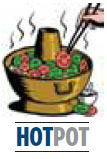
When my mother visited China at the age of 73, she said it was the first and would be the last time. Being an independent woman, she liked to go out by herself, without a guide or an interpreter. To her complaint, I replied: "But there is pinyin everywhere!" "Yes, but," she objected, "What is the use reading 'Youyi Binguan' if I don't know the meaning?" Good point.
Two years ago, in Hangzhou, Ningbo and Wuhan, I was asked my view on the recent standardization of topographic names. Should Minzhu Bei Lu be translated into Democracy North Rd. or North Democracy Rd.? The problem is not there, but what is the use for a foreign tourist to know that minzhu means democracy if he can't ask his way in English to a passer-by or a taxi driver? He could have more chance to get an answer if asking for Minzhu Bei Lu, whatever the tones are.
Another problem is the choice of road, avenue, boulevard, drive, street, lane, alley, for the Chinese "lu", "jie", "hutong", etc. Different names for the same Chinese word are used in translation in Shanghai, Chongqing or Beijing.
Imposing "Rd." to all the non-Chinese visitors creates another problem. Not all the visitors are English speakers, and "Rd." is unintelligible for most foreigners.
Regarding individual names as well as foreign companies, products and organizations names, I strongly recommend that the original name be kept, between parentheses, following its translation.
For the Chinese, the meaning of a character and its beauty prevail on its sound to the point that it’s often impossible to imagine, from its Chinese translation, what the original name was. For example, Yashi Landai is translated as 雅詩蘭黛. I admit that these characters are appropriate for a person who is in the field of cosmetics and beauty. But phonetically, who could guess that Ya-Shi- Lan-Dai is the famous Estee Lauder? It could have been translated 愛絲緹老德兒, which is closer to the original pronunciation. But the Chinese translate for themselves, not for the non-Chinese, and they make a piece of art of each translation.
Names of foreign actors in film casts, or artists in museums, often become unrecognizable once translated.
For Hot Pot Column, click here
|
|
|
|
|
|
|
|
